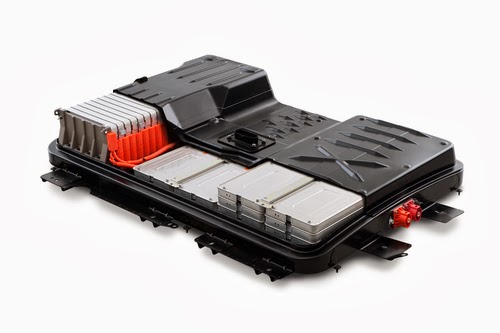Maybe the 2016 Leaf will (finally) come with two battery pack sizes – 24 kWh and 30 kWh? And maybe Nissan will be selling upgraded battery packs to owners of existing Leaf’s? But maybe the people on a certain MyNissanLeaf forum are just smoking crazy stuff?
Over on a MyNissanLeaf forum posting![]() someone claims to have received information about the 2016 Nissan Leaf. (Nissan has announced nothing as yet) The posting went into some details about colors and trim levels, but the interesting part is the claim that the Leaf S will have a 24 kiloWatt-hour battery pack, while the SV and SL will have a 30 kiloWatt-hour pack.
someone claims to have received information about the 2016 Nissan Leaf. (Nissan has announced nothing as yet) The posting went into some details about colors and trim levels, but the interesting part is the claim that the Leaf S will have a 24 kiloWatt-hour battery pack, while the SV and SL will have a 30 kiloWatt-hour pack.
Why is this interesting? It’s because 30 kWh means an honest 100+ mile range. More range is a big step in the right direction. At 30 kWh we’re still not talking a 200+ mile range EV, but 100 miles range is better than 80 miles range.
The other bit is that that CHAdeMO port might be a standard feature on the Leaf SV and SL – where today it’s a $1500+ option.
A 30 kWh pack and CHAdeMO as a standard feature would put the Leaf on par with the Kia Soul EV. The Soul EV has a 27 kWh pack (usable 27 kWh meaning its maximum capacity is over 30 kWh) and has CHAdeMO as a standard feature, all at the same price as the 2015 Leaf. This makes the Soul EV the best of the affordable EV’s on the market, but that would change if Nissan does what that poster claims.
If you read the thread further some others speculate that Nissan will be able to supply newer packs for old Leaf’s. I’m certain that if I owned a 2011 Leaf that I’d love the opportunity to swap in a new technology battery pack. For example it may be in a couple years that Nissan will be able to make 40 kWh packs for the Leaf. If they manage to keep the same form factor, the pack should be able to slot right into the battery pack bay on even a 2011 Leaf and it would be good to go.
That’s the theory anyway.
The assumptions behind that theory are
- Nissan will keep the same pack form factor – even when moving to the 40 kWh pack required to deliver a 150+ mile range
- That Nissan, like any automaker, has to keep spare parts around for 10+ years (hence, lots of spare battery packs in warehouses)
- That the 2011 battery management system will be capable of accommodating future battery packs of larger capacity and different battery chemistry characteristics
- That Nissan cares about customers so much to deliver battery pack upgrades rather than push a whole new car on customers
While those assumptions are plausible, it’s doubtful in my mind that it’s technically feasible. Maybe Nissan thought far enough ahead to make the BMS flexible enough for future battery chemistries. Or maybe Nissan will be able to swap BMS modules for a newer one. Or maybe not. And maybe Nissan would prefer to sell their customers a new car rather than new battery packs. We won’t know until Nissan either does or does not offer larger battery packs to owners of older Leaf’s.
It’s likely the 40 kWh pack will become available in 2017. Would a 2011 Leaf upgraded to a 40 kWh pack be cheaper than a brand new 2017 Leaf? It might, and if so might undercut the value of the 2017 Leaf. On the other hand there have been significant technology improvements in later Leaf model years, such as the 6 kW charging system and huge energy efficiency improvements. For that reason I recommend only the 2013 Leaf or later.
All this should be treated as far out rumors until we hear actual details from Nissan. I just found it interesting enough to spend a few minutes writing about it.
- The USA should delete Musk from power, Instead of deleting whole agencies as he demands - February 14, 2025
- Elon Musk, fiduciary duties, his six companies PLUS his political activities - February 10, 2025
- Is there enough Grid Capacity for Hydrogen Fuel Cell or Battery Electric cars? - April 23, 2023
- Is Tesla finagling to grab federal NEVI dollars for Supercharger network? - November 15, 2022
- Tesla announces the North American Charging Standard charging connector - November 11, 2022
- Lightning Motorcycles adopts Silicon battery, 5 minute charge time gives 135 miles range - November 9, 2022
- Tesla Autopilot under US Dept of Transportation scrutiny - June 13, 2022
- Spectacular CNG bus fire misrepresented as EV bus fire - April 21, 2022
- Moldova, Ukraine, Georgia, Russia, and the European Energy Crisis - December 21, 2021
- Li-Bridge leading the USA across lithium battery chasm - October 29, 2021











